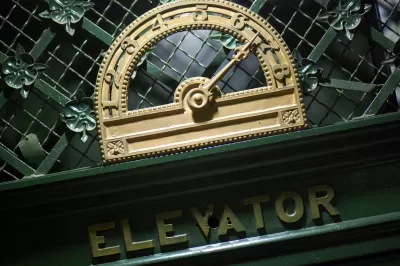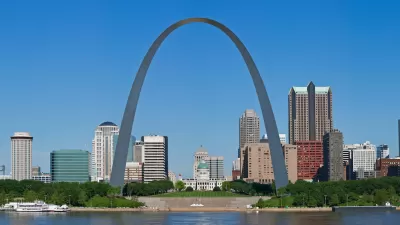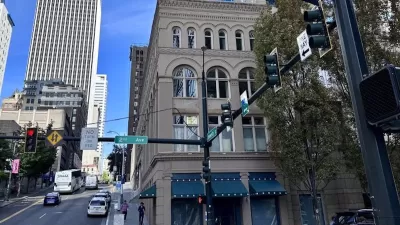A series of pieces from Sidewalk Labs examines the history and context of vital urban "innovations." So far, elevators, sewers, and traffic signals have been covered.

For Sidewalk Labs, Eric Jaffe introduces a series of articles on how urban life has generated some of the most world-changing technologies out there. The focus is on history and context. "One of the many problems with the term 'smart cities' is its suggestion that urban life has been dumb in the past."
Jaffe goes on, "Over the coming weeks, we'll explore some of the biggest steps forward — and, at times, backward — in transportation, buildings, energy, data, and infrastructure." Three pieces are out already, covering relatively recent inventions like elevators and traffic lights, as well as ancient ones like sewage systems (whose world-changing nature we cannot overstate).
There is wisdom to be gleaned from all of this. As Jaffe puts it, "The clearest lesson is that innovation never takes hold in cities overnight. That's been true even of the greatest leaps forward in urban technology. Steam accounted for a tiny fraction of U.S. power nearly 60 years after Watts invented his great engine." He also points to the role of policy and public-private collaboration in mainstreaming many of these inventions.
FULL STORY: 15 Innovations That Shaped the City

Study: Maui’s Plan to Convert Vacation Rentals to Long-Term Housing Could Cause Nearly $1 Billion Economic Loss
The plan would reduce visitor accommodation by 25,% resulting in 1,900 jobs lost.

North Texas Transit Leaders Tout Benefits of TOD for Growing Region
At a summit focused on transit-oriented development, policymakers discussed how North Texas’ expanded light rail system can serve as a tool for economic growth.

Using Old Oil and Gas Wells for Green Energy Storage
Penn State researchers have found that repurposing abandoned oil and gas wells for geothermal-assisted compressed-air energy storage can boost efficiency, reduce environmental risks, and support clean energy and job transitions.

Private Donations Propel Early Restoration of Palisades Playground
Los Angeles has secured over $1.3 million in private funding to restore the Pacific Palisades playground months ahead of schedule, creating a modern, accessible space that supports community healing after recent wildfires.

From Blight to Benefit: Early Results From California’s Equitable Cleanup Program
The Equitable Community Revitalization Grant (ECRG) program is reshaping brownfield redevelopment by prioritizing projects in low-income and environmental justice communities, emphasizing equity, transparency, and community benefits.

Planting Relief: Tackling Las Vegas Heat One Tree at a Time
Nevada Plants, a Las Vegas-based nonprofit, is combating the city’s extreme urban heat by giving away trees to residents in underserved neighborhoods, promoting shade, sustainability, and community health.
Urban Design for Planners 1: Software Tools
This six-course series explores essential urban design concepts using open source software and equips planners with the tools they need to participate fully in the urban design process.
Planning for Universal Design
Learn the tools for implementing Universal Design in planning regulations.
Ascent Environmental
Borough of Carlisle
Institute for Housing and Urban Development Studies (IHS)
City of Grandview
Harvard GSD Executive Education
Toledo-Lucas County Plan Commissions
Salt Lake City
NYU Wagner Graduate School of Public Service





























